

At whatever stage of your Pilates journey you may be at you’ll likely have heard me mention your fascia – especially those of you who attend my Zenga Flow class – or something called ‘Myofascial release’. Fascia is a word that has been getting increasing mainstream attention recently, yet is still generally misunderstood. So what exactly is our Fascia – and why is it so important?
What is your Fascia?
In essence, your fascia is one big continuous net that surrounds everything in our bodies, including our skeleton, muscles, nervous system and organs. The term is derived from Latin and means ‘band’, or ‘bandage’.
Thomas Myers, author and thought leader in fascial systems describes the fascia as:
‘…the biological fabric that holds us together, the connective tissue network. You are about 70 trillion cells – neurons, muscle cells, epithelia – all humming in relative harmony; fascia is the 3-D spider web of fibrous, gluey, and wet proteins that binds them all together in their proper placement.’
Recent research has shed light on just how much fascia matters, from affecting range of motion in joints to the role it can play in injury prevention and healing. Like the musculoskeletal system, the fascial system changes in response to repeated stress and injury, and small changes in the fascia in one area of the body can ripple out and affect the body as a whole.
Why is my Fascia so important?
Grab hold of the collar of your shirt and give it a little tug. Your whole shirt responds, right? Your collar pulls into the back of your neck. The tail of your shirt inches up the small of your back. Your sleeves move up your forearms. Then it falls back into place. That’s a bit like fascia. It fits like a giant, body-hugging T-shirt over your whole body, from the top of your head to the tips of your toes and crisscrossing back and forth and through and back again. You can’t move just one piece of it, and you can’t make a move without bringing it along.
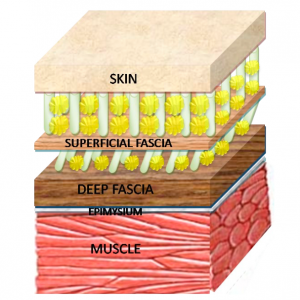
Now, pull the collar of your shirt again, only this time, hold onto it for eight hours. That’s about the time you spend leaning forward over a desk or computer or steering wheel, right? Now, pull it 2,500 times. That’s about how many steps you’d take on a half-hour run. Your shirt probably isn’t looking too good at this point.
Fortunately, your fascia is tougher than your shirt is, and it has infinitely more self-healing properties. In its healthy state it’s smooth and supple and slides easily, allowing you to move and stretch to your full length in any direction, always returning back to its normal state. Unfortunately, it’s very unlikely that your fascia maintains its optimal flexibility, shape or texture. Lack of activity will cement the once-supple fibers into place. Chronic stress causes the fibers to thicken in an attempt to protect the underlying muscle. Poor posture and lack of flexibility and repetitive movements pull the fascia into ingrained patterns. Adhesions form within the stuck and damaged fibers like snags in a sweater, and once they’ve formed they’re hard to get rid of. Hard, but not impossible.
How can I look after my fascia?
Education
Pilates is one of the best known movement therapies. Dancers and gymnasts have long embraced movement therapy. They use verbal cues, light touch and simple exercises to lessen the unconscious destructive movement patterns that may be irritating their fascia.
Respect your body
If you’re attempting to run through an injury, or returning from one with a limp, beware: Your fascia will respond to your new mechanics and, eventually, even after your injury is gone, you may maintain that same movement pattern. That’s a recipe for an injury cycle. It’s better to take some extra time than to set yourself up for long-term trouble.
Do a variety of activities instead of just one. If you just walk your body gets adapts to a certain pattern and this is detrimental to your fascia. Continually do a wide variety of different activities such as walking, swimming – and of course, Pilates! Zenga Flow especially is fabulous for stretching and conditioning the Fascia gently and creating Myofascial release.
Stretch your fascia
Once your fascia has tightened up, it doesn’t want to let go. Because the average fascia can withstand up to 2,000 pounds of pressure per square inch, you’re not going to force your way through, so you need to stretch gently.
Fascia also works in slower cycles than muscles do, both contracting and stretching more slowly. To stretch the fascia, hold gentle stretches for three to five minutes, relaxing into a hold.
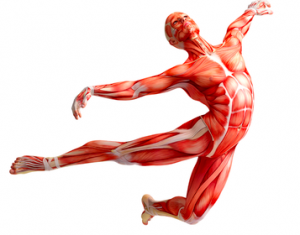 Stretch your muscles
Stretch your muscles
When you hold your muscles tight, the surrounding fascia tightens along with them. Over time the fascia becomes rigid, compressing the muscles and the nerves.
Move it or lost it
Sticky adhesions form between fascia surfaces that are not moved regularly. Over time these adhesions get strong enough to limit your range of motion. Take a few minutes first thing in the morning to roll around in bed and really stretch out, head to toe, just like a cat after a nap.
Stay lubricated
Just like every other tissue and organ in your body, your fascia is made of water. It works better, moves better and feels better when it’s hydrated. So, drink up.
Relax
If you spend all day tense and tight at a desk, 15 to 20 minutes in a warm Epsom salt bath can coax a tight fascia to loosen up, releasing your muscles from their stranglehold. Make sure to follow it up with 10 minutes of light activity to keep blood from pooling in your muscles.
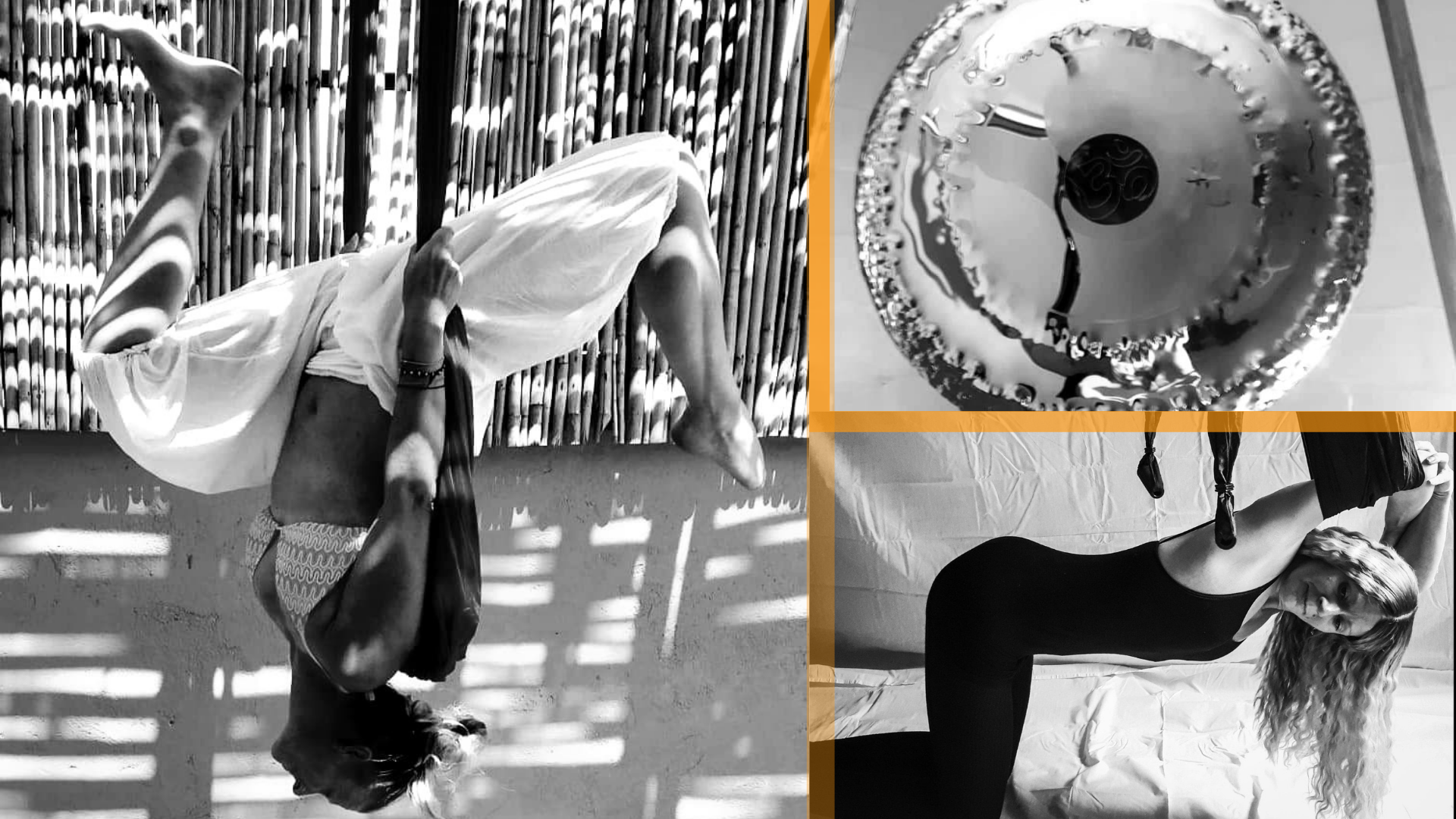
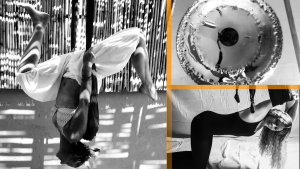


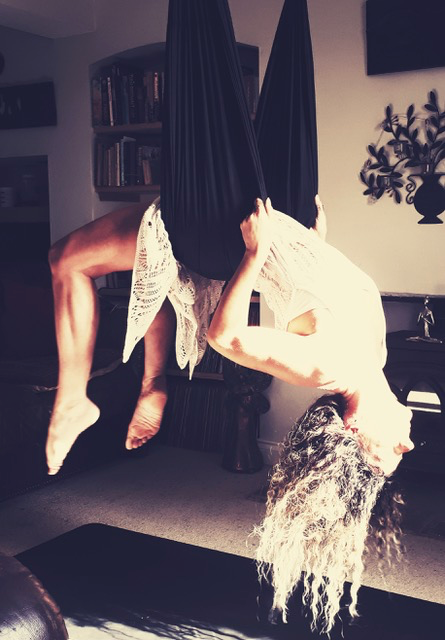
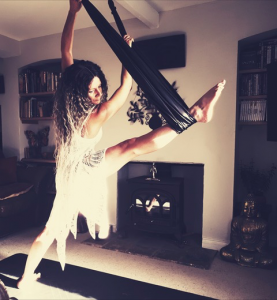
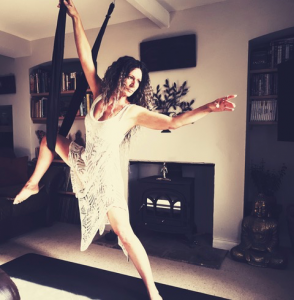
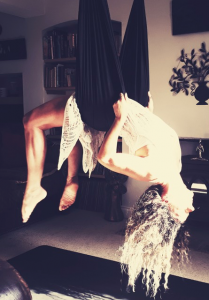


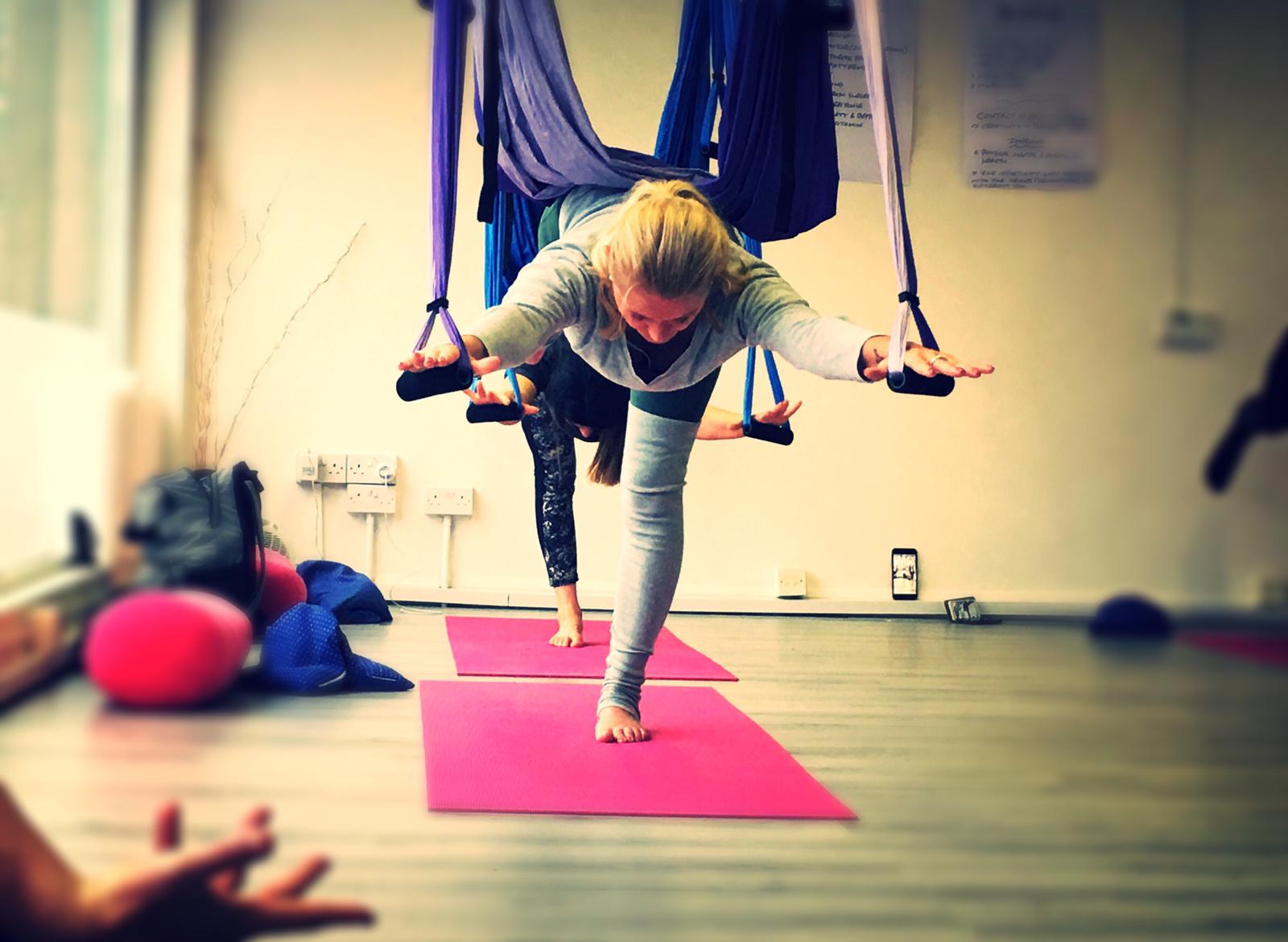
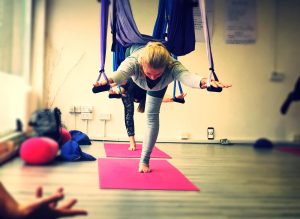
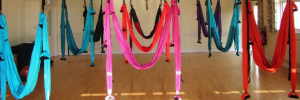




 Stretch your muscles
Stretch your muscles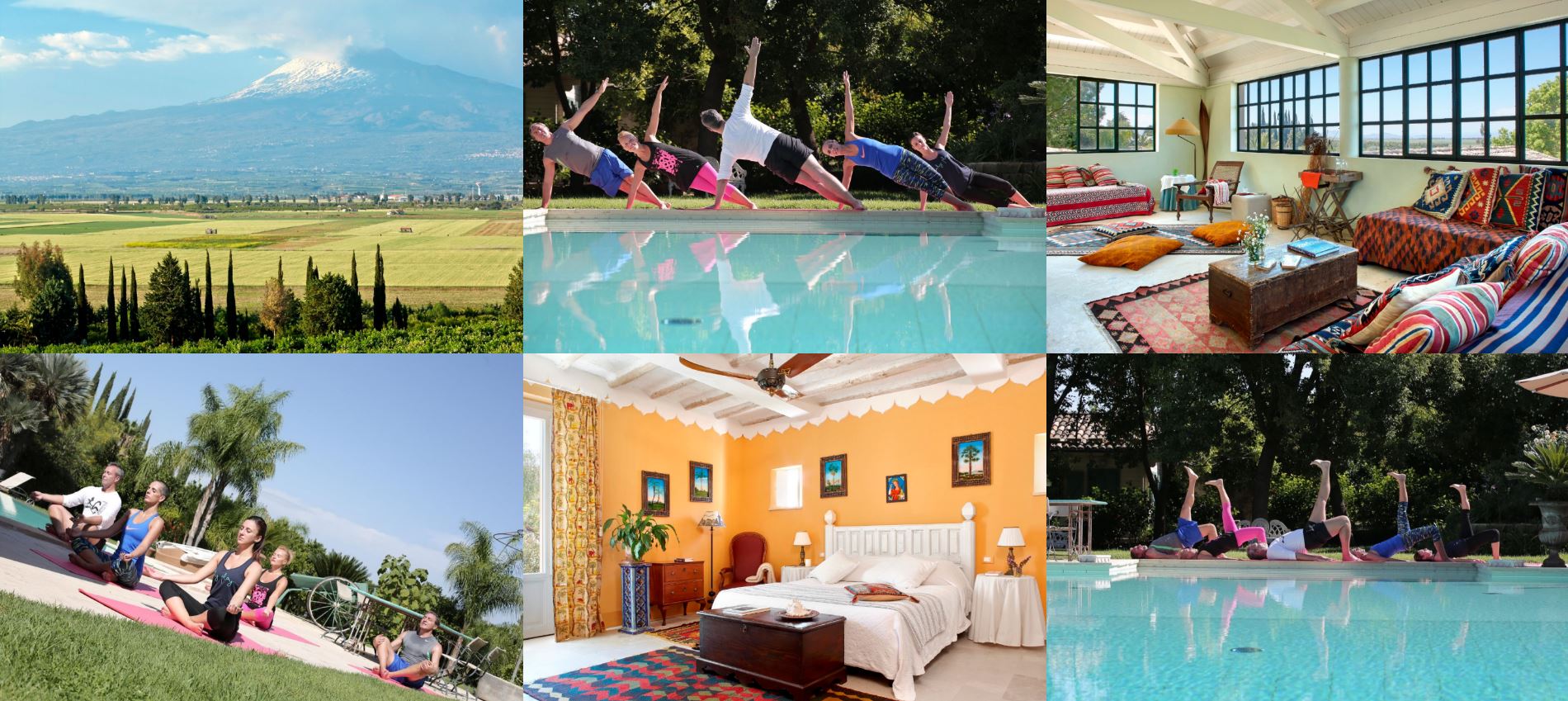


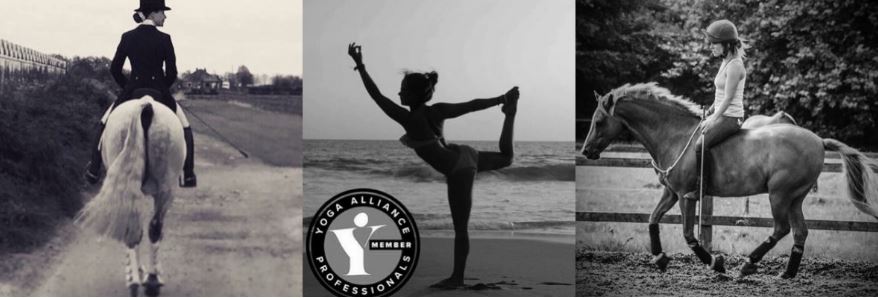
Recent Comments